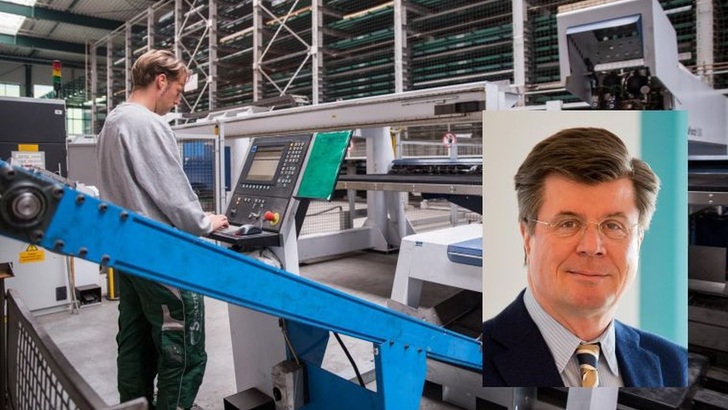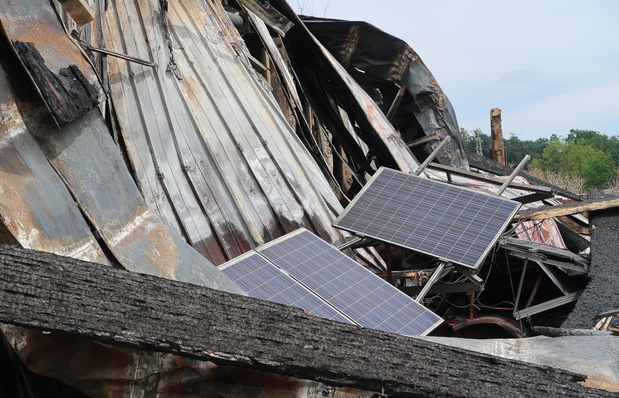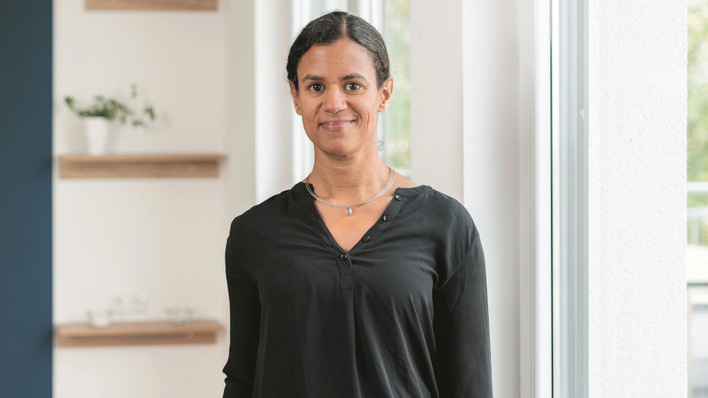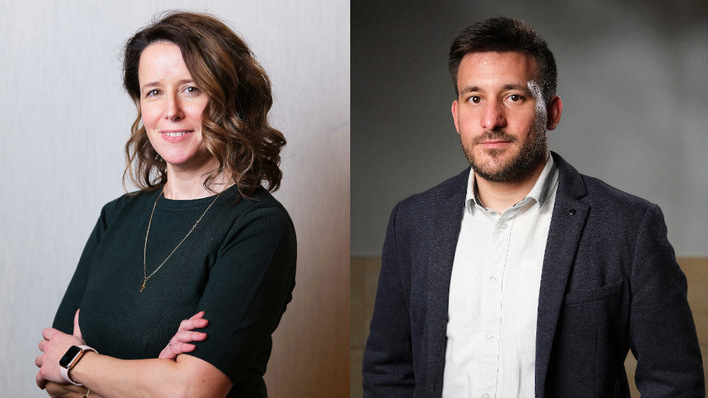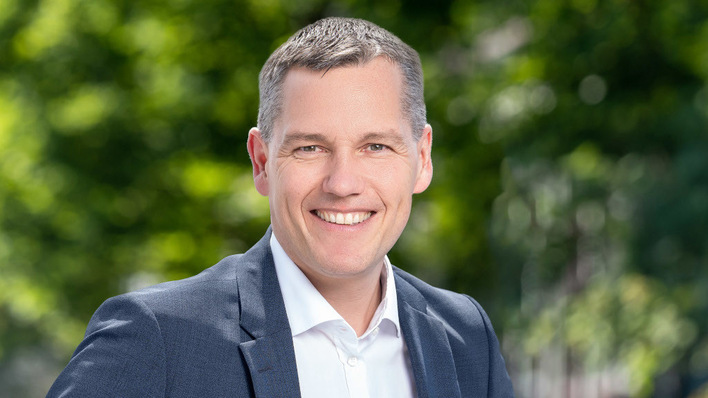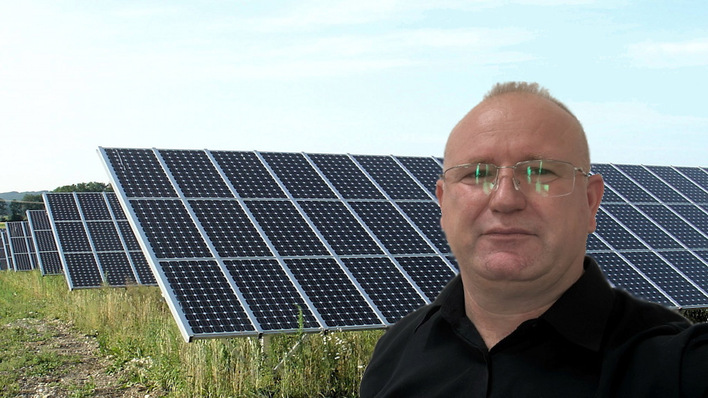What was the initial situation when you started managing the group?
Tom Graf: We took over the company with a sophisticated product portfolio and a solid international footprint. On the other hand, it had a product strategy and procedures that were no longer adequate for a company of that size and in parts also for the market as it then existed.
Can you give us some examples?
There was an extremely deep vertical integration, in that the company had manufactured almost everything in-house, down to the last bolt. Because turnover had been shrinking significantly in the last five to six years, many departments were very much producing below capacity, particularly in Kirchdorf. And Schletter had established a very wide product range which had been expanding steadily. We needed to become more efficient in all of these areas: On the one hand by focusing on our core business of solar, and on the other by reducing the vertical integration and organising efficient procedures. That also applies to the product portfolio where we are reducing complexity for us and our customers – without limiting the range of possible applications.
Reducing vertical integration – what does that imply in detail?
It means that we focus on what we are best at and where we can achieve a decent volume of production. For example, we now no longer produce aluminium frames, but rather buy them from specialised manufacturers. We sold off the aluminium press that we had. Another step is to also buy in all of the fixings and fasteners that have so far been produced in-house. This allowed us to significantly raise our purchasing volume and disproportionally reduce the fixed staff cost – and that not at the cost of quality. On the contrary: A specialist supplier that produces hundreds of tonnes of bolts per year has, of course, far more specific know how and experience compared to us, who produce at much lower volumes. These measures allow us to achieve an similarly efficient structures at the Kirchdorf site as have already been implemented at our locations in China and North America. These locations currently still show much greater cost flexibility and profitability – but Kirchdorf is catching up.
Another dimension of your repositioning are manufacturing procedures. What is that all about?
It is about becoming faster and more productive by introducing methods and procedures that are common practice in, for instance, the automotive industry, such as the idea of low-waste or zero-waste production. There is a lot to be done here and much improvement is needed. By implementing better supply chain management, we want to reduce the lead time in production. Common management tools such as continual improvement procedures (CIP) that also involve suggestions by members of staff are part of the picture as well. So it is not just about procedures, but more about a certain corporate culture. I am convinced that many companies in this sector will have to tackle this form of industrialisation in the coming years in order not to be left behind in this current process of consolidation.
Is the supply chain also under scrutiny?
Yes. After all, it stretches from procurement all the way to delivery to the customer. And efficient procurement is one area where the automotive industry has the edge. Not everything can be adapted as is, but we will introduce certain methods, starting with the reliability of our suppliers: Delays or discrepancies in the amount or quality of products have a negative impact on the productivity within the company. We need to work on that. This is where our quality management comes in. Suppliers are subject to regular auditing, and with new products or suppliers, we ask for product samples that are thoroughly tested. We also seek to drastically reduce the number of our suppliers, which allows us to optimally integrate those remaining suppliers into our procedures. The goal is to keep as little in our own warehouses as possible and to not have to implement extensive incoming goods inspections.
And what major adjustments are being made within the company itself?
Of course, the supply chain also involves procedures within the company: How fast are products being processed? That also involves planning operations as precisely as possible, which is a key element in guaranteeing streamlined procedures aimed at saving time and reducing expensive warehousing. The necessary infrastructure – an up-to-date system for recording operational data – has been in place for a while. Our employees have to learn to use it properly, both in terms of their skills and being convinced. Creating a sense of the usefulness of rules and procedures among our staff takes persuasion. This is more of a soft factor, but hugely important. Everybody needs to be aware of what he needs to do and where his responsibilities are. But we have great employees who are good at implementing that.
In the repositioning, management also has a key role to play. Is your new team ready to go?
Yes. Financial director Oliver Renzow and I have been here since early 2016. Since then, we have filled key positions such as procurement, quality management and production with executives who all have a background in the automotive sector and possess a great deal of experience and procedural know how. In this regard, the leadership team is and will be in good shape. Our overseas subsidiaries are also well staffed, with an able local management team. For my part, I spend a lot of time here in Kirchdorf, where the majority of the restructuring is happening. Especially in this phase it is important to keep keep in touch with our staff – which also is quite satisfying.
Why do you refer so much to the automotive sector?
Clearly, our products are very different. A car needs to last ten years, while a solar installation is designed to work for 25 years. Also, it consists of considerably fewer parts. But what can be applied, or at least where there are valuable lessons, is in the procedures, approaches and methods. It is beyond doubt that the German automotive supply industry is a world leader and has set standards when it comes to procurement, adhering to procedures and keeping scrap rates low. As as someone who has been active in the automotive industry, I know what benefits well-conceived and solid procedures can entail. Proper organisation results in reduced waste, be that in terms of time, materials or capacities; in being sure about what we are doing and being able to communicate that to the customer; that the customer can rely on being supplied on time, at any time and to the highest quality standards.
Schletter had already had quite a solid international presence. What has been happening overseas?
In markets beyond Europe we have seen considerable growth, more so than in Europe itself. Asian markets in particular – China and Japan – as well as Australia have seen an increase in turnover. But we were also able to generate a higher turnover in North America. Non-European turnover now is more than half of the total revenues of the Schletter Group. In order to achieve that, we expanded our Chinese production facilities and modernised them in terms of procedures. The same has happened in North America. Out of logistical considerations, we generally source our materials locally. All the while, we make sure that the overall quality and standards are maintained. In specific markets where demand is insignificant we have shut down branch offices. If needed, we can supply these markets from other countries.
Are you also changing tack in sales?
Not entirely – but we are shifting the focus. For conventional large-scale greenfield projects, we still deal directly with the customers, i.e. usually the EPCs. We generally handle our business in rooftop and carport installations through either wholesalers or directly. But we are trying to shift emphasis.
You mean, put greater focus on wholesalers?
Ever since the recent boom years seven or eight years ago, the market has undergone a significant transformation. Many customers that were very large then are now generating much less income from smaller volumes per commission. We are not equipped to supply all of the installing companies involved in small projects as quickly and efficiently as necessary. There the wholesalers have the edge: The network of distributors that we cooperate with is very tight and spread out all over Germany. This generally keeps transport routes short and often allows wholesalers to actual supply goods overnight, which we as an industrial company cannot always guarantee. We do not reject any customers, but rather we want to show our customers what the benefits are of going through wholesalers. But there, too, there has been a process of consolidation, and so our wholesalers will also be eager to retain their customers. This, in turn, benefits the customers – and thus us as well.
What turnover has the Schletter Group generated in 2016?
Our global turnover for 2016 was almost 300 million euros. About one third of that comes from the German branch that supplies Germany and Western Europe. The Schletter as a company is now entirely focused on the solar sector. Any product segments that are not related to the solar sector have either been abandoned or phased out. With that in mind, these are dimensions that we are quite happy with. Especially because we intend to keep growing in the international markets. (PF)
Read more about Schletter:
http://www.pveurope.eu/Products/Solar-Generator/Mounting/Schletter-offers-new-module-clamp-family
Get to know more about solar modules.
Stay informed, get our newsletter twice a week.
Register here: https://www.pveurope.eu/newsletter


